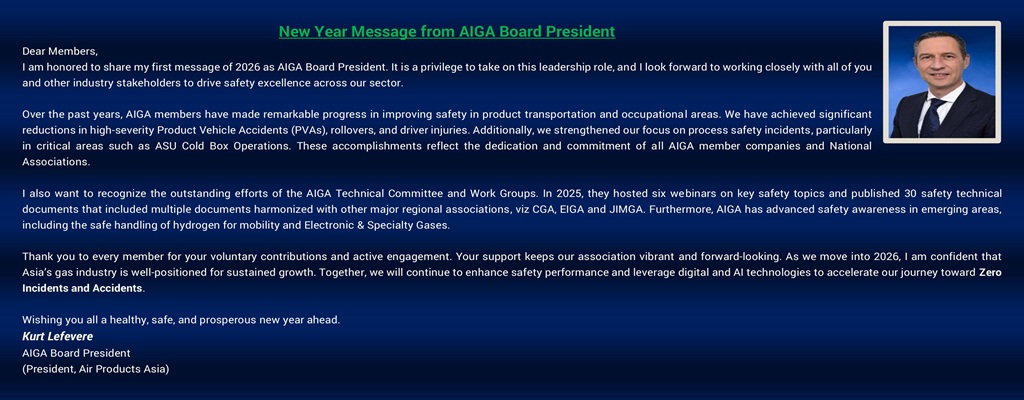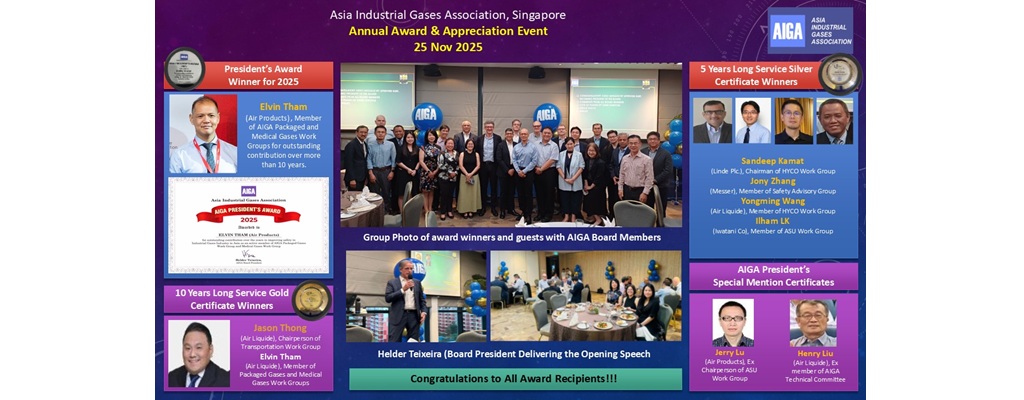






 This section will be updated regularly.
First published on: 18/04/2020
Last updated on: 18/04/2020
This section will be updated regularly.
First published on: 18/04/2020
Last updated on: 18/04/2020

The Asia Industrial Gases Association (AIGA) was established in 2002 by the leading industrial gases companies operating in Asia outside of Japan, Australia, New Zealand and the South Pacific islands.
AIGA is technical and safety focused and brings together the national industrial gases associations in Asia with the objective to raise the standard of safety and environmental care across Asia in the use and handling of industrial gases.
AIGA is registered as a non-profit society based in Singapore. It aims to foster the exchange of technical information among its members in the safe handling and use of industrial, specialty and medical gases, and to have close liaison with national authorities, in order to work towards the highest level of safety and environmental care across Asian countries.
AIGA works in co-operation with the other regional associations, namely, CGA (U.S), EIGA (Europe) and JIMGA (Japan). It actively participates in the harmonization of standards across the gas industry on a global level with the other regional gases associations.
Read more...
To promote general safety, health, environmental awareness and security so that occupational injuries and illnesses are minimized, environmental damage is avoided, security of hazardous materials is assured and continuous improvement of performance in these areas is achieved.
To provide national associations with standards and information for their use and recommendation to local authorities in the preparation of laws and regulations that will be both practical and effective.
To promote harmonization of technical standards and practices within the industry
To review accidents and incidents and recommend preventive measures
To promote the creation and continual vigour of national associations thereby encouraging the nation-wide implementation of its standards
To promote an effective and efficient response to emergencies involving industrial gases in transit and at customer sites
Read more...